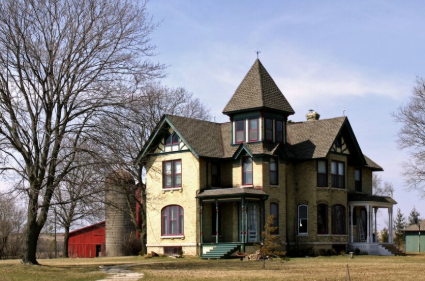Massachusetts is known for its picturesque towns, rich history, and charming architecture. For those relocating to the Bay State, moving into a historic home can feel like stepping into a storybook. But along with the charm comes a unique set of considerations that modern homeowners may not expect.
Whether you’re settling in Andover, Salem, Concord, or any of the state’s many historic towns, this guide will help you understand what you need to know before living in a historic New England home.
Table of Contents
Know What a Historic Home Is
In Massachusetts, a historic home is generally considered any home that is more than 50 years old. Many homes in the state were built before 1900 and have been preserved for their architectural significance.
Some of these houses are listed on the National Register of Historic Places if they also meet certain other criteria.
Before you move in, find out if your new home falls under any preservation or historical society oversight. This can affect what renovations you can make or how the exterior of your house should be maintained.
Also Read
Get a Professional Home Inspection
Older homes usually come with their own sets of challenges. It’s best to hire a professional who has experience with historic properties. They can spot things that a general home inspector might miss, including:
- Outdated electrical systems
- Hidden water damage
- Structural wear and tear
A proper inspection also helps you find out exactly what needs maintenance, repair, or replacement before you move in.
Plan for Upgrades

Living in a historic home doesn’t mean you have to live without modern comforts. Carefully planned updates can preserve the character of your home while making it more livable.
Some common improvements revolve around energy efficiency. This means upgrading the:
- Windows
- HVAC systems
- Plumbing
When it comes to interior aesthetics, even subtle upgrades can make a big difference. If you’ve found a home in Andover, for example, getting Andover window treatments and updating your window coverings allows you to maintain the historic vibe while improving privacy.
Learn the Local Regulations
In many Massachusetts towns, local historical bodies oversee changes to properties in historic areas. This can involve certain restrictions and rules on what changes or renovations you can make to your new home.
Be sure to check with your town or city hall about any such restrictions or required permits. This will save you a headache and a potential fine down the line.
Budget for Maintenance
Historic homes are beautiful, but they also need love and care. Budgeting for ongoing maintenance is essential.
Original wood siding, brick chimneys, slate roofs, and antique fixtures all require specialized care and attention. Some parts of the home may even need repairs or replacements. It’s smart to have a separate fund for these kinds of issues.
And if you’re planning on living in the home for a long time or relocating for a career change, consider budgeting for routine upkeep as well.
Conclusion
Moving into a historic home in Massachusetts can be an incredibly exciting and rewarding experience. With thoughtful planning, respect for the past, and a touch of modern convenience, your new home can be a beautiful piece of history and a place where you truly feel at home.






